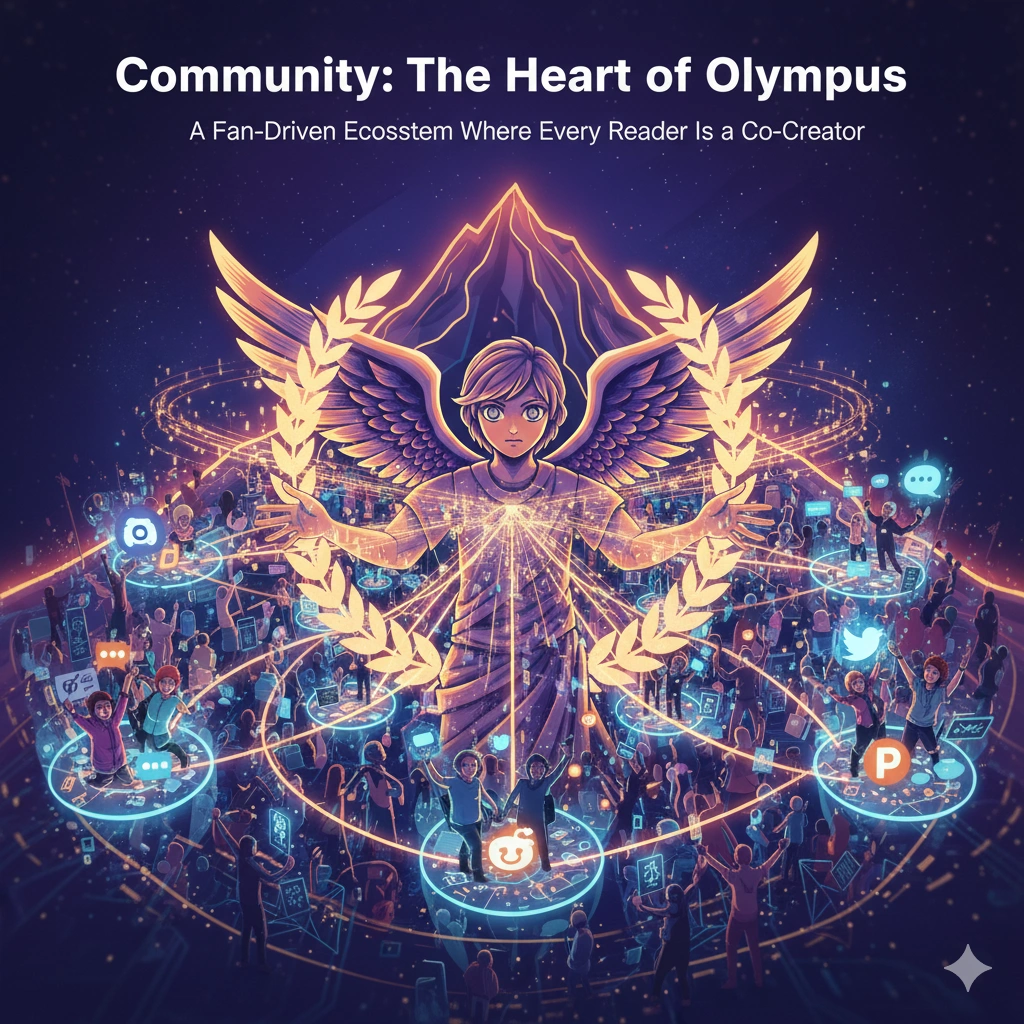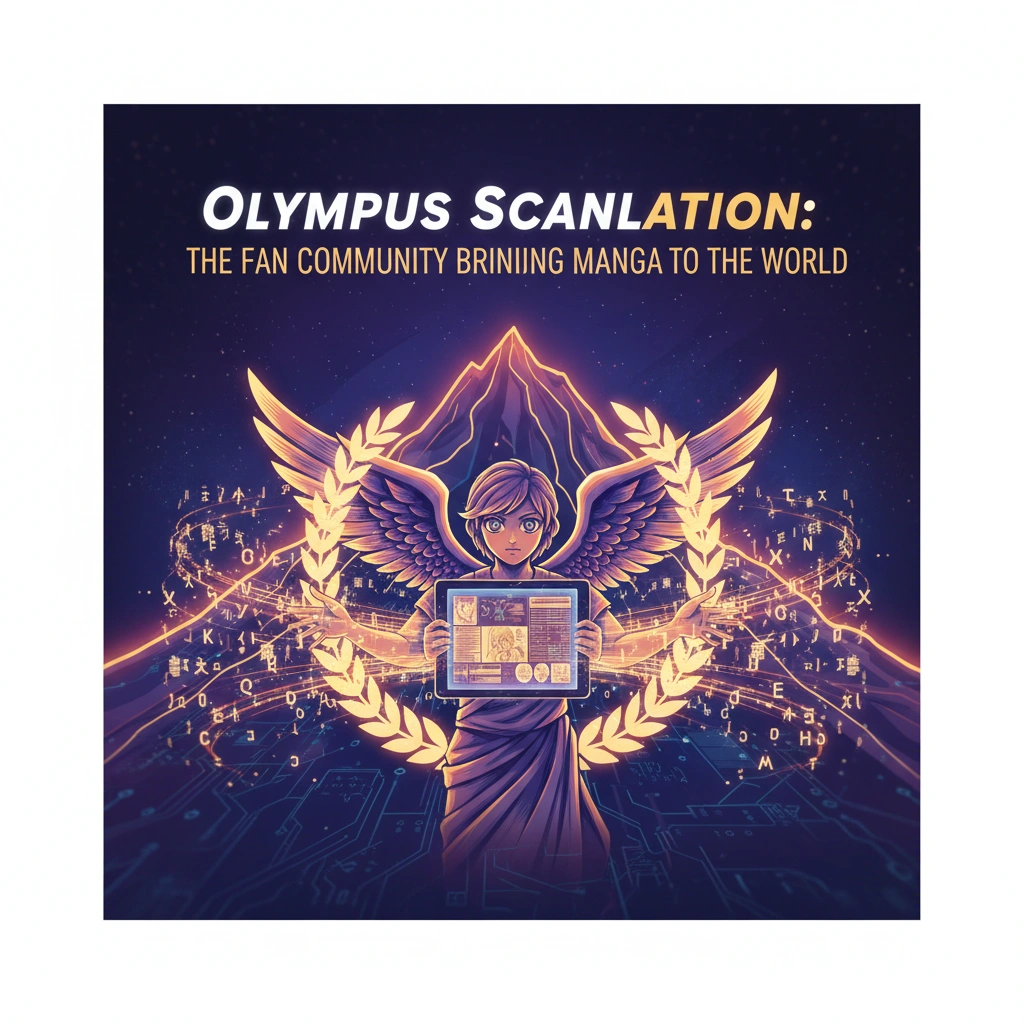Olympus Scanlation: The Fan Community Bringing Manga to the World
If you’ve ever waited months for an official English release of your favorite manga, you know the frustration. A new chapter is trending in Japan or Korea, fans overseas are buzzing about spoilers, and you’re left out of the conversation until publishers decide to release it. Sometimes, those official translations never come at all. That gap between demand and availability is exactly why Olympus Scanlation exists. Born from the passion of fans who couldn’t stand watching great stories remain locked behind language barriers, Olympus has become one of the most respected scanlation groups in the world.
Understanding Scanlation: More Than Just “Free Manga”
Scanlation, short for scanning and translation, is the fan practice of taking raw manga or manhwa pages, translating the text, and then editing the pages so readers around the world can enjoy them. On the surface, it may look like just another way to read comics online, but it’s a lot deeper than that. Unlike piracy sites, which simply upload content without permission, scanlation is usually community-driven and non-commercial. Volunteers give their time because they love the medium, not because they want to make money. Most serious groups, including Olympus, stop working on a title once it’s officially licensed in English. That way, they don’t compete with the industry—they help pave the way for new audiences.
Scanlation fills a cultural gap too. Official publishers often skip over niche or experimental titles, leaving fans of certain genres—like historical manhwa, slice-of-life manga, or lesser-known fantasy series—without access. Groups like Olympus keep those stories alive, making sure fans outside Asia can discover them. If you think about it, they’re acting like cultural translators, not just language translators.
How Olympus Scanlation Earned Its Reputation
Scanlation has been around since the early ’90s, but Olympus took the concept and raised the bar. While many fan groups burn out after a few months, Olympus built a sustainable community by focusing on quality, transparency, and reader engagement. Their chapters often look professional, rivaling official publications. That didn’t happen by accident—it came from building a structured team and treating the work with care.
Instead of a handful of people juggling everything, Olympus created roles that mirror a small publishing house. Translators focus on the language. Cleaners fix the artwork. Typesetters handle fonts and layout. Proofreaders catch errors. Quality control ensures the final release feels polished. By splitting responsibilities, Olympus not only maintains consistency but also avoids burnout, which is why they’ve lasted while others disappeared.
Here’s a snapshot of their team structure:
| Role | What They Do |
|---|---|
| Translators | Convert Japanese, Korean, or Chinese text into English with cultural accuracy |
| Editors | Smooth out phrasing so it reads naturally while keeping the author’s intent |
| Cleaners | Erase old text, remove scan imperfections, and prep images for redrawing |
| Redrawers | Restore artwork where speech bubbles or text covered details |
| Typesetters | Insert translated text using fonts that fit the tone of the manga/manhwa |
| Proofreaders | Correct grammar, spelling, and flow before release |
| Quality Control | Final check to ensure professional quality |
This assembly-line approach makes Olympus stand out. Every chapter feels cared for, not rushed.
The Workflow: From Raw Pages to Release
So, how does a random Japanese or Korean manga chapter get turned into a finished English version by Olympus? It starts with sourcing high-quality raws, often purchased directly or supplied by trusted partners. Translators then step in, carefully balancing literal translation with readability. Some jokes, idioms, or cultural references don’t make sense in English, so editors step in to localize them without losing the original flavor.
Once the text is ready, cleaners remove the old dialogue and repair the artwork. Redrawers then restore any parts of the art hidden under speech bubbles. It’s meticulous work—sometimes redrawing an entire hand or background detail that was never fully visible. Typesetters add the new English dialogue back in, making sure fonts and spacing match the mood of the scene. Finally, proofreaders and a quality control team polish the chapter until it feels seamless.
It’s easy to underestimate how much time goes into each release. A single 20-page chapter can take dozens of combined volunteer hours. And yet, Olympus manages to maintain a steady release schedule, which is why readers trust them so much.
Community: The Heart of Olympus Scanlation

While the technical process matters, what truly makes Olympus shine is its community. This isn’t just a translation group working in isolation—it’s a fan-driven ecosystem. Olympus actively involves readers in decisions, letting them vote on future projects, join Discord discussions, and participate in polls. That sense of inclusion makes fans feel like co-creators rather than passive consumers.
The group also stays connected through Twitter, Reddit, and forums, where they share updates, memes, and behind-the-scenes insights. This transparency builds loyalty. Fans don’t just wait for chapters—they cheer on the team, suggest improvements, and sometimes even volunteer their own skills.
Walking the Tightrope: Ethics and Legality
Let’s address the elephant in the room: scanlation isn’t technically legal. Copyright law means distributing translated chapters without permission falls into a gray area. But Olympus has built its reputation on responsible practices. They never charge money for their work, and they always encourage fans to support creators by purchasing official releases once available. In fact, they’ll drop a project immediately if a publisher licenses it in English.
This approach not only protects the group but also demonstrates respect for the creators. Many fans see Olympus as a stepping stone—helping them discover new series they later buy officially. Some publishers, though never openly endorsing scanlation, quietly acknowledge its role in building international demand.
Why Olympus Stands Out in a Crowded Field
With hundreds of scanlation groups out there, why has Olympus become such a big name? A few reasons stand out. They maintain professional-grade standards while staying volunteer-driven. They work across multiple languages, covering Japanese, Korean, and Chinese content. They involve the community in decisions, creating a sense of shared ownership. They’re transparent about their stance on legality and ethics. And they’re even experimenting with AI tools for translation and cleaning—not to replace humans, but to speed up repetitive tasks.
Perhaps most importantly, Olympus has built a strong internal culture. Volunteers often describe the team as a “family,” which explains why people stay committed long-term. That consistency is rare in the scanlation world, where burnout is common.
The Bigger Picture: Olympus’ Impact on Manga Fandom
Olympus isn’t just releasing free chapters. They’re shaping how manga spreads globally. By bringing attention to lesser-known titles, they often help build enough buzz for publishers to notice. Many smaller series owe their eventual English licenses to early scanlation exposure. On top of that, Olympus has indirectly trained future industry professionals. Plenty of translators, editors, and typesetters got their start in fan groups before moving into official publishing.
In short, Olympus has helped expand the global manga ecosystem, not compete with it. They’ve made stories accessible to fans worldwide, inspired people to join the industry, and fueled demand for diverse titles.
Conclusion
At the end of the day, Olympus Scanlation is more than a fan group—it’s a bridge between cultures, a community hub, and in many ways, an unofficial talent incubator for the manga industry. While debates about legality will always surround scanlation, Olympus has shown that it’s possible to operate responsibly while still serving fans. For anyone who has ever felt left behind by slow or incomplete official translations, Olympus offers a lifeline to the stories we love. And for the manga industry itself, Olympus serves as proof of just how strong global demand really is.
FAQs
Q1: What is Olympus Scanlation?
Olympus Scanlation is a fan-driven group that translates manga and manhwa into English, offering high-quality releases and engaging with a global community.
Q2: Is Olympus Scanlation legal?
Scanlation exists in a legal gray area, but Olympus Scanlation follows ethical practices by staying non-commercial and stopping work on licensed titles.
Q3: How does Olympus Scanlation work?
The group uses a structured workflow with translators, editors, cleaners, redrawers, typesetters, and proofreaders to ensure professional-quality chapters.
Q4: Why is Olympus Scanlation popular among fans?
Readers trust Olympus for their consistent quality, multilingual projects, and strong community involvement that makes fans feel part of the process.
Q5: How does Olympus Scanlation impact the manga industry?
By introducing lesser-known titles to global readers, Olympus helps fuel demand for official licenses and has even nurtured future professionals in publishing.







